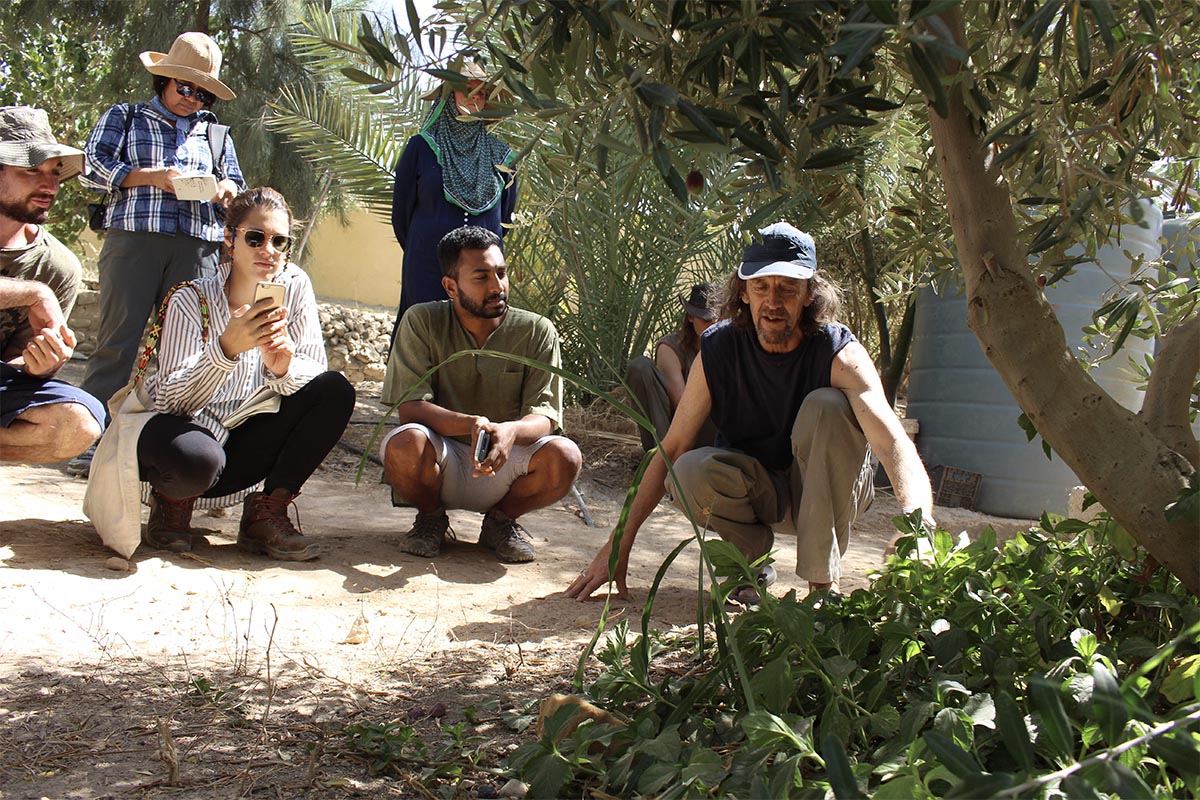
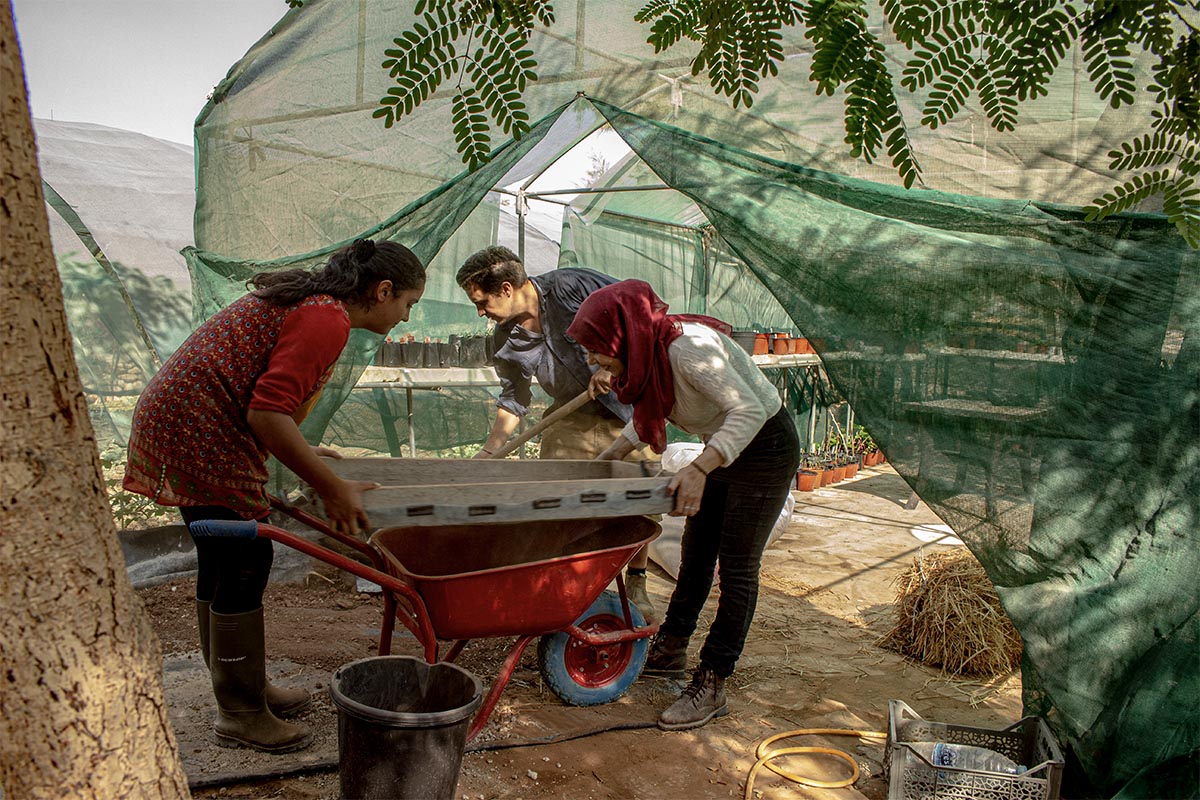
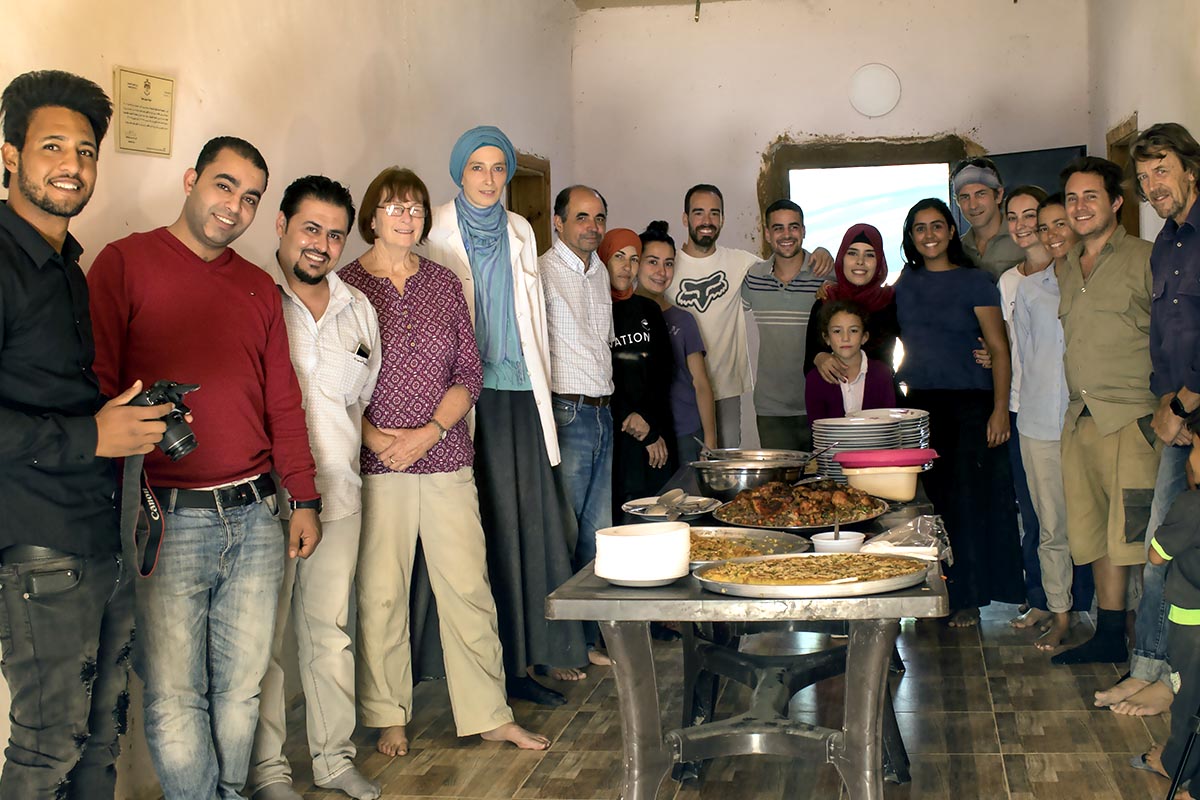
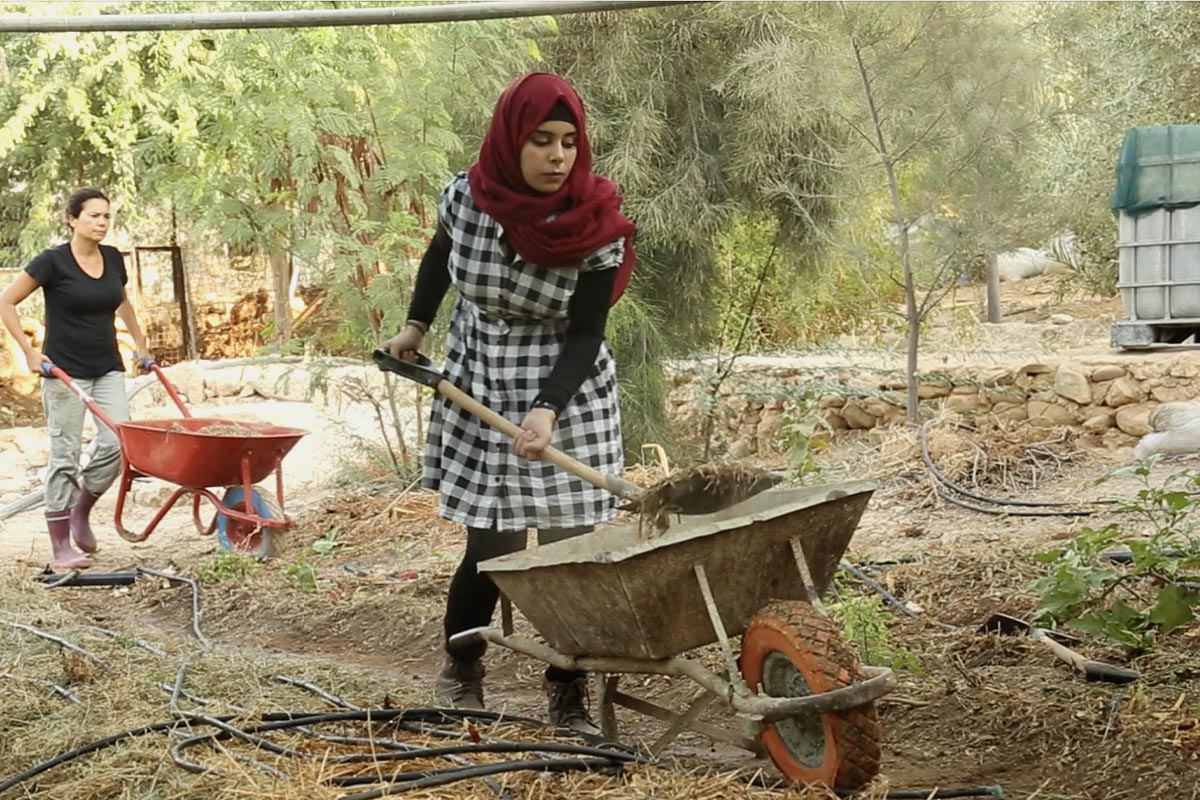
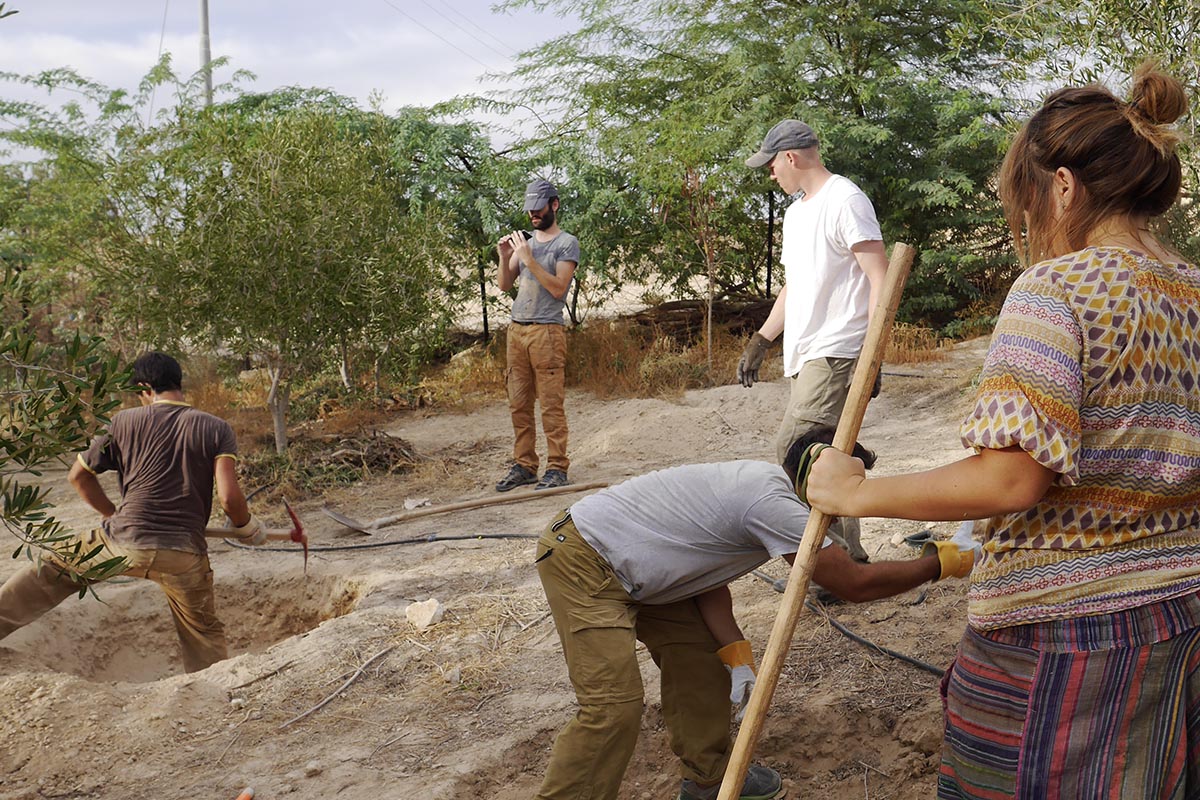
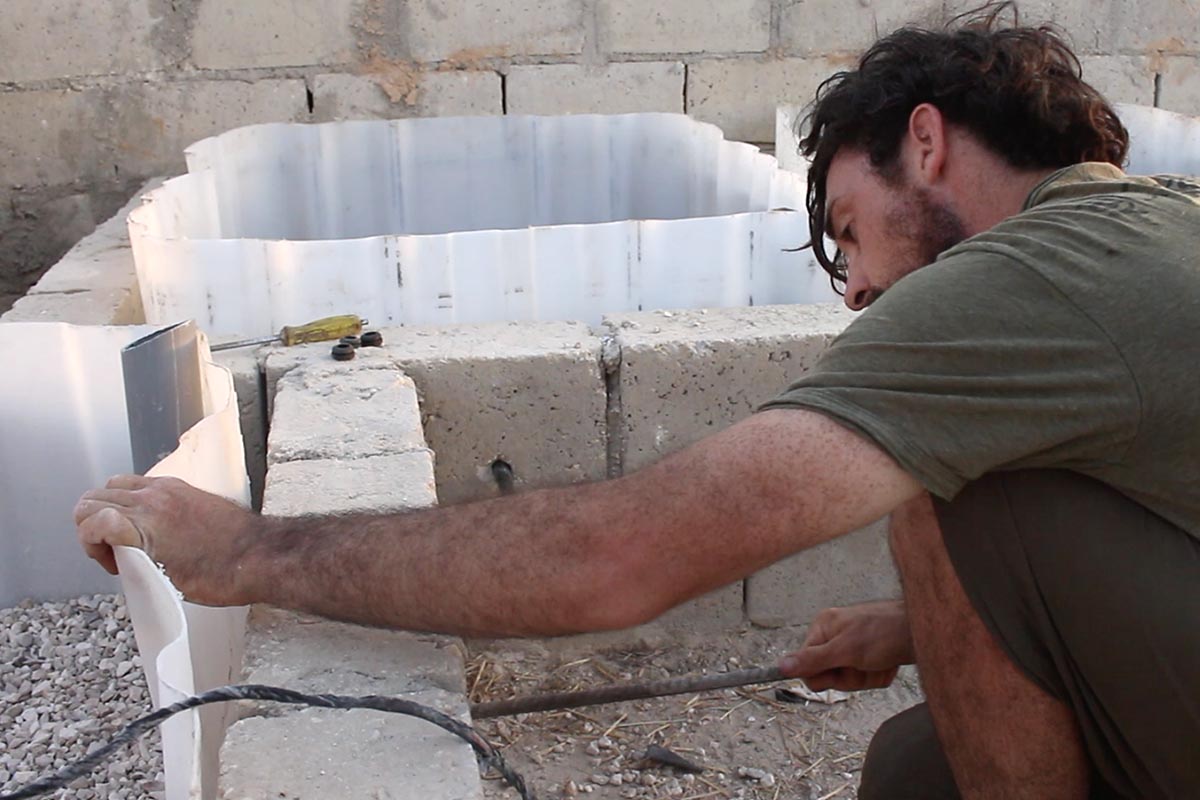
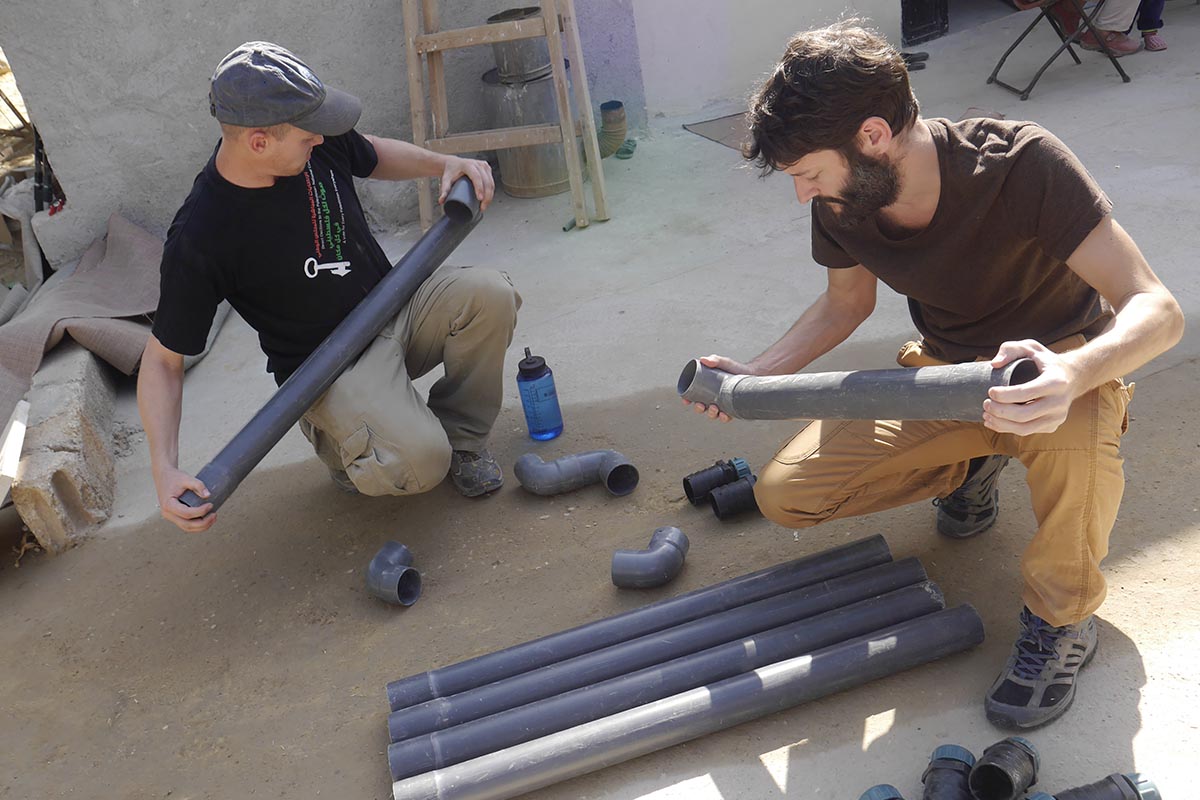
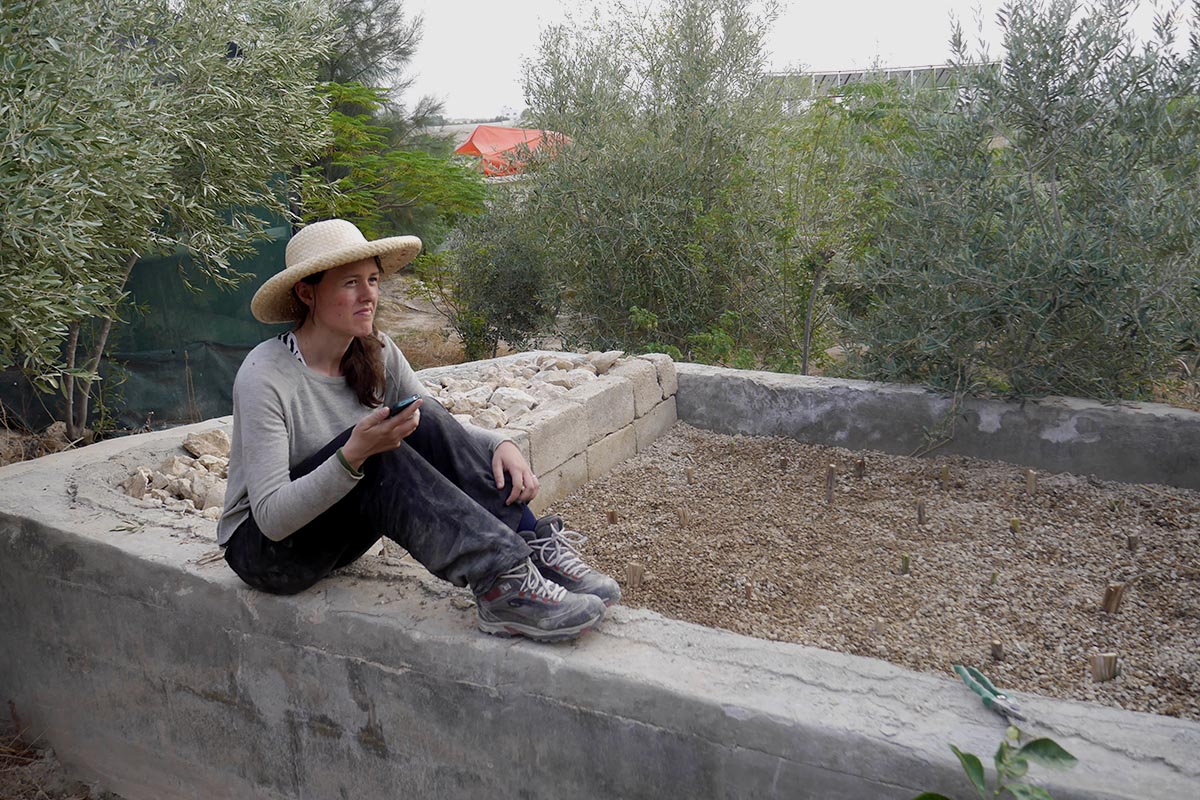
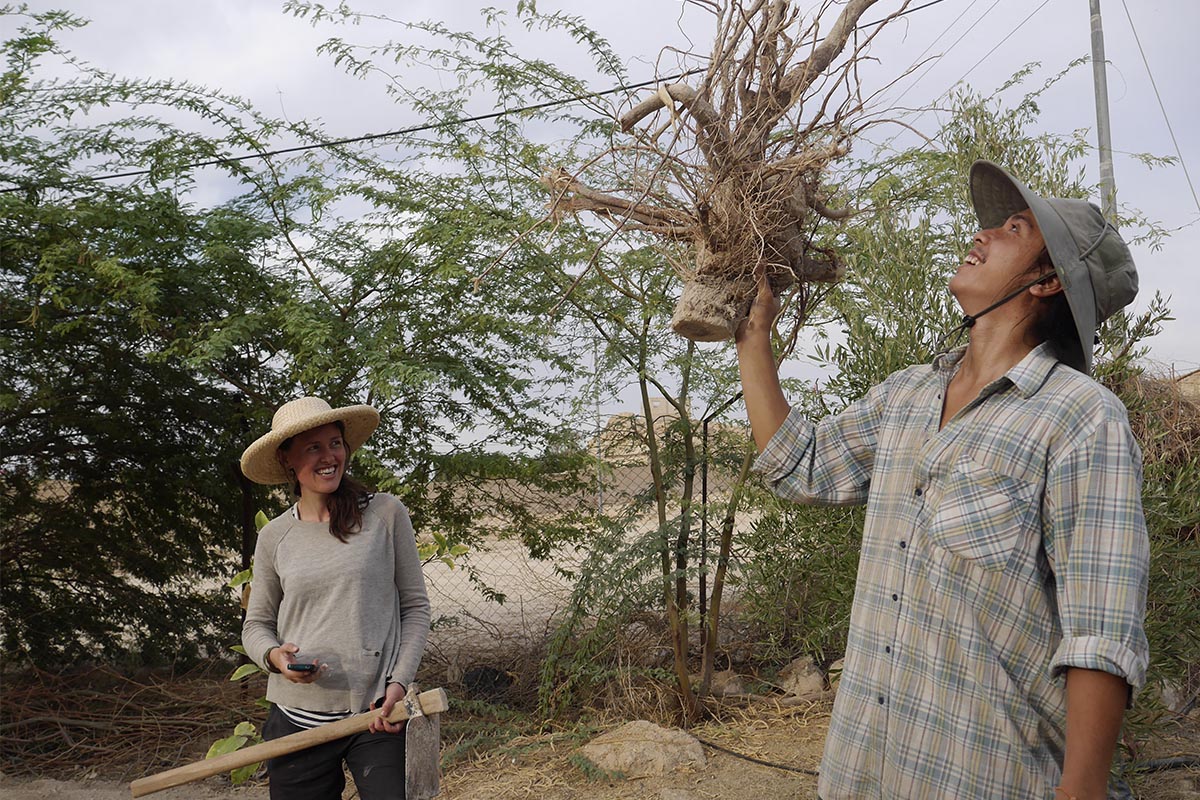
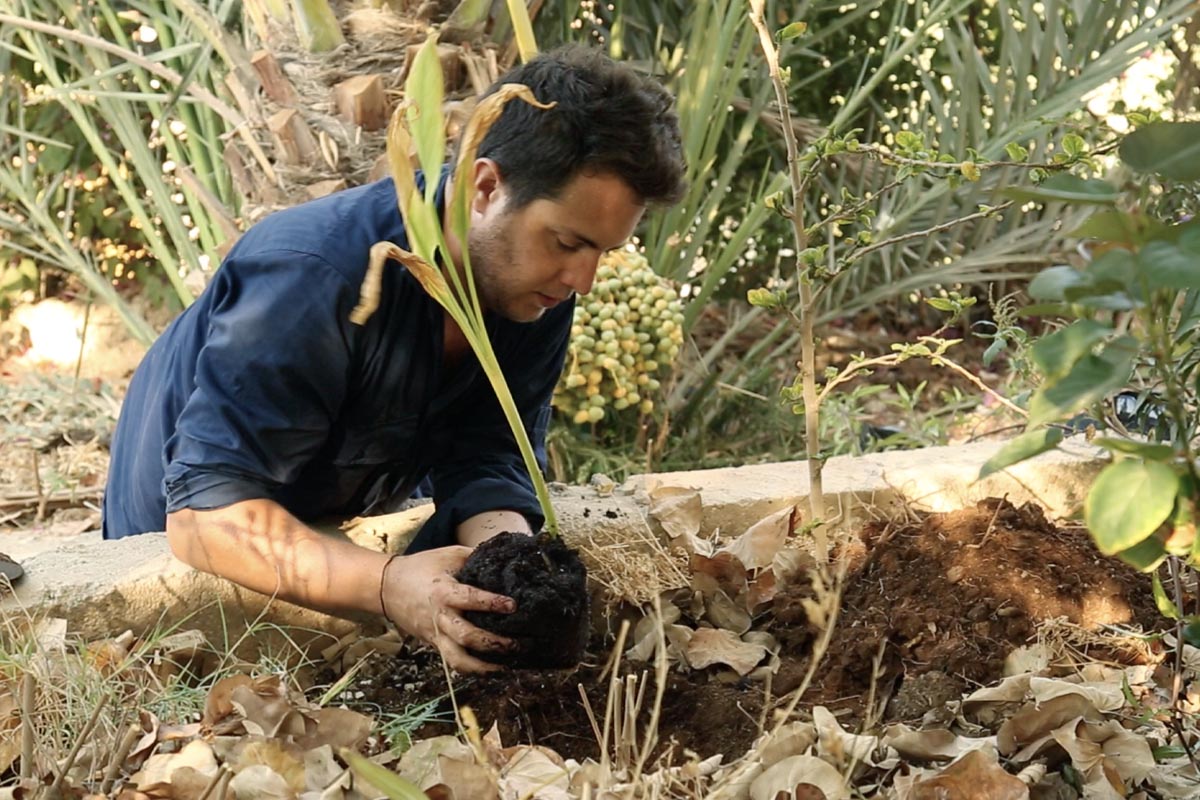
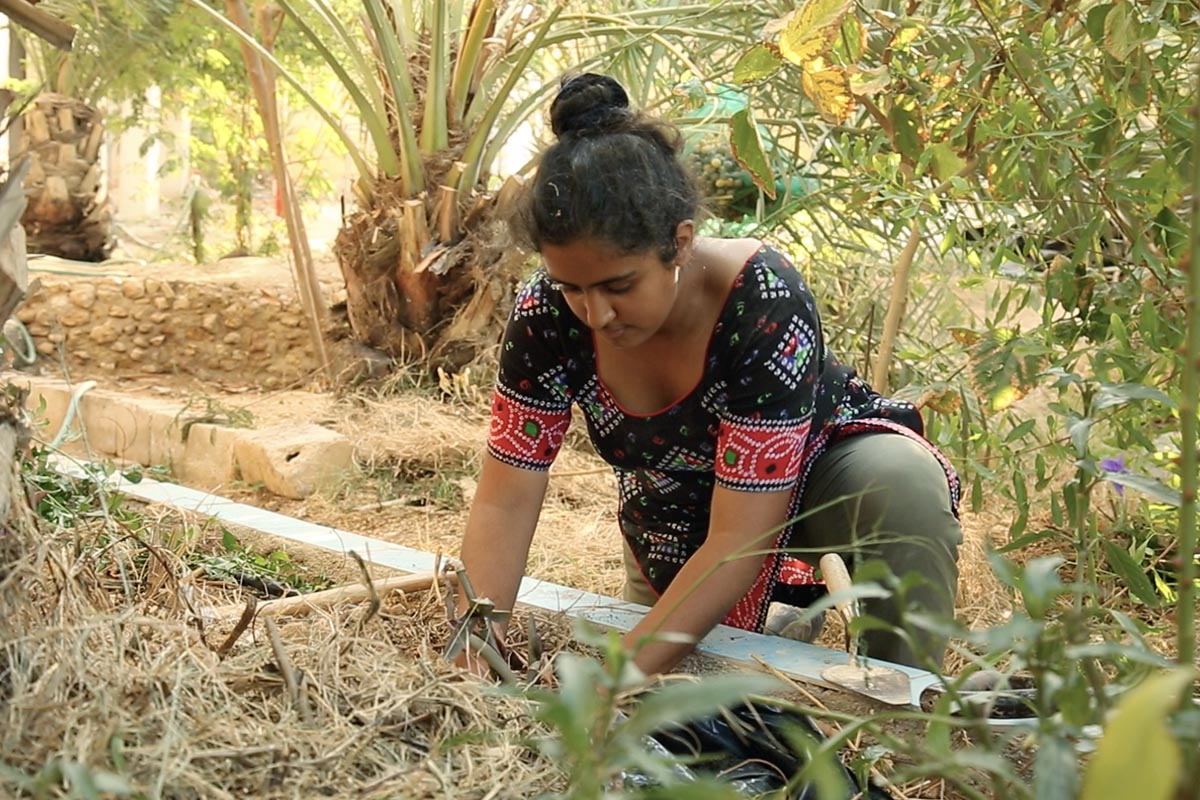
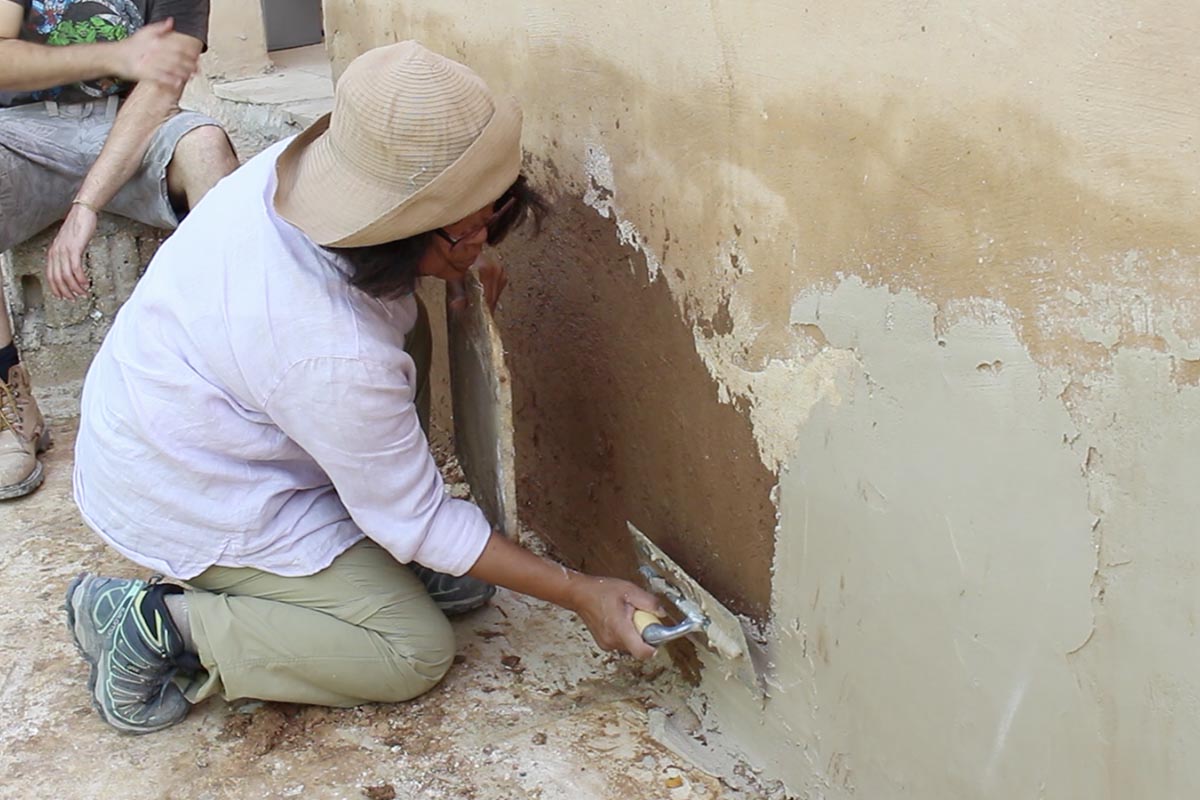
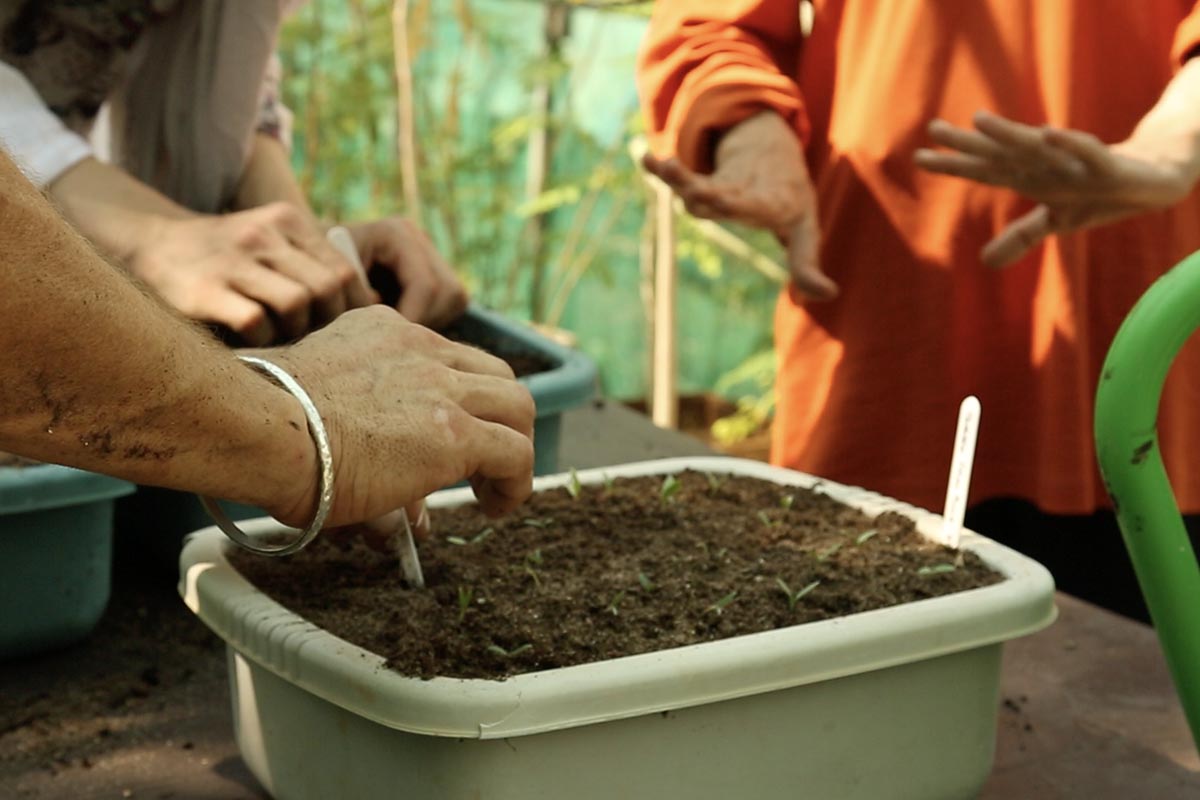
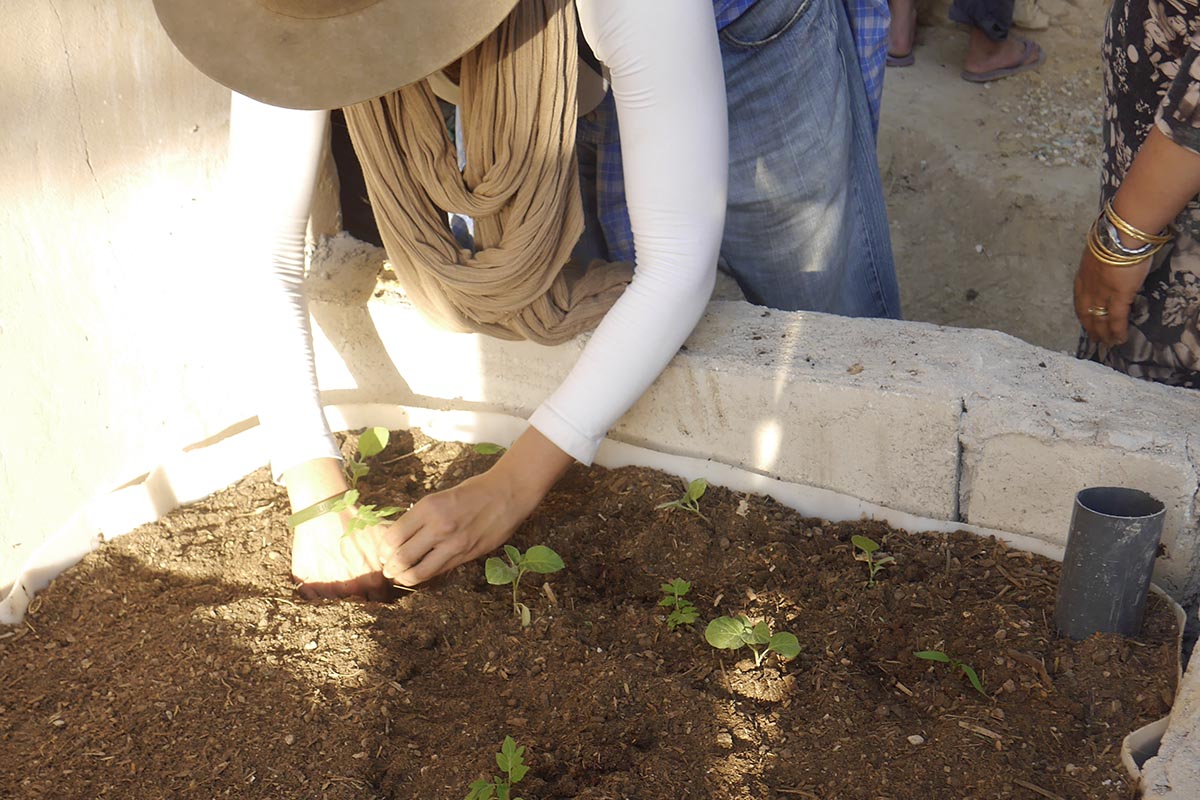
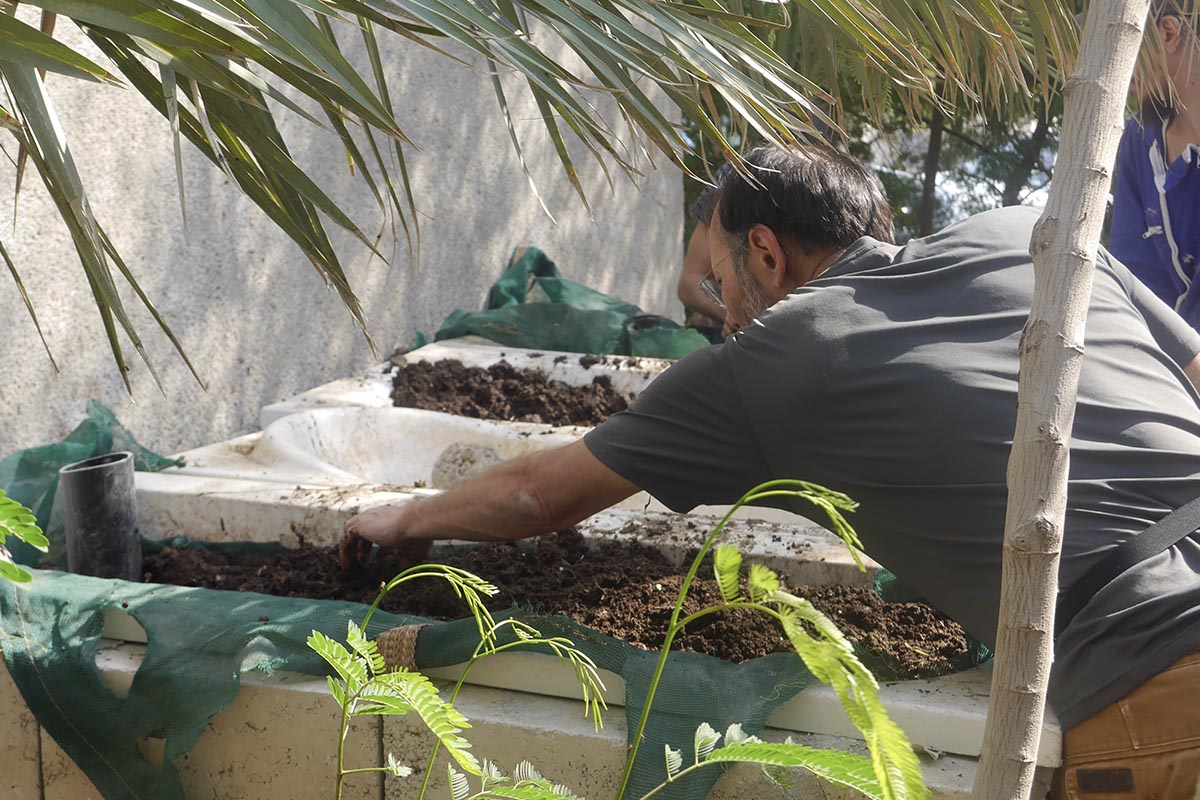
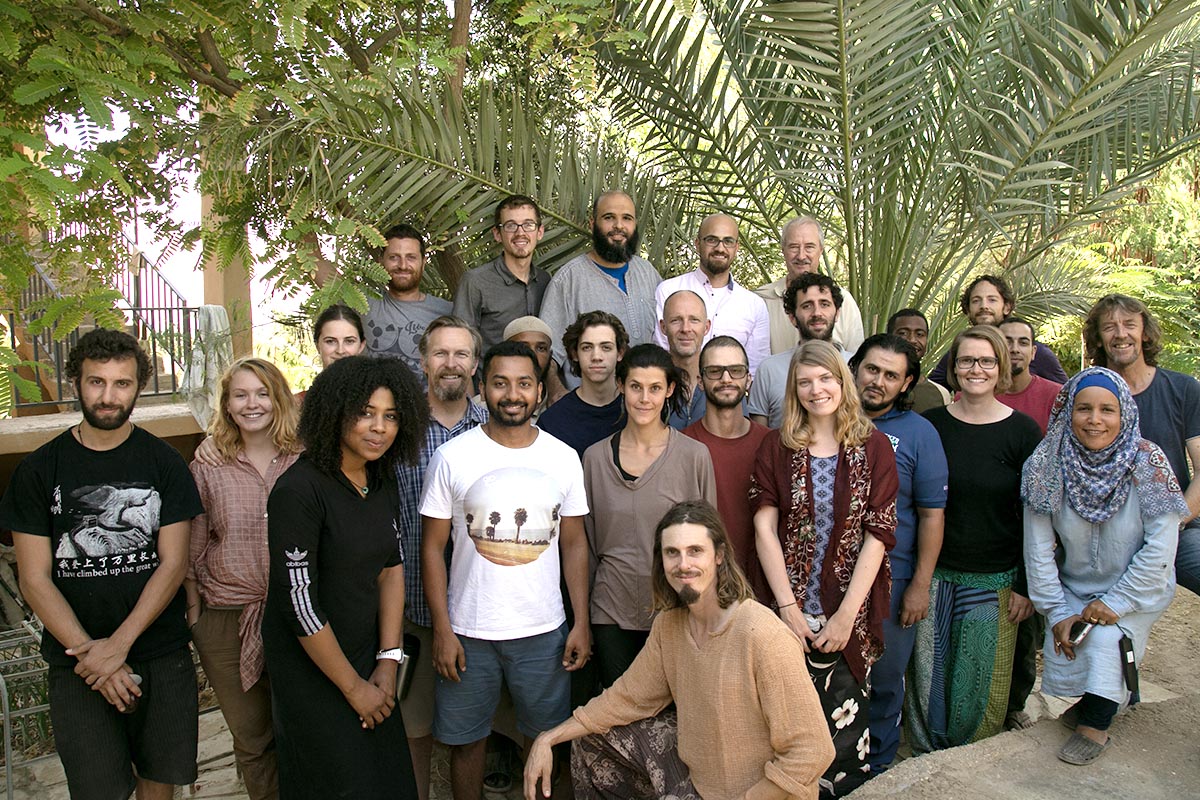
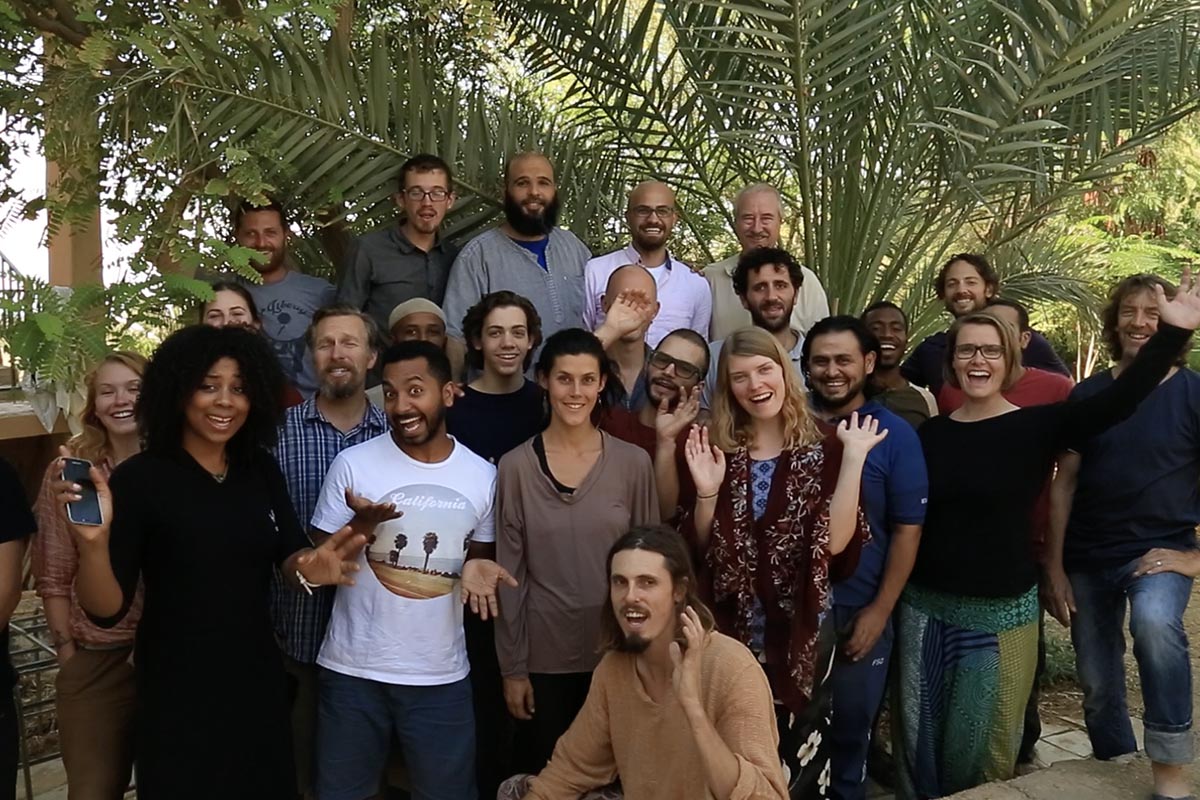
4 Weeks Permaculture Internship 17th of November to the 12th of December 2019
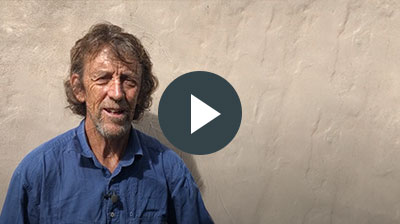
 Greening the desert Project
Greening the desert ProjectWhat is included
- 4 Weeks Internship
- Camping Accommodation
- Hot showers and Toilet Facilities
- Nutritious Organic Lunch
- Coffee and tea breaks.
Related products
-

Permaculture Design Certificate Course (PDC) 24th March – 4th of April 2024
$500.00 – $2,800.00 Select options -

2 Days Fermentation Workshop 15 – 16 November 2019
Rated 3.50 out of 5$100.00 – $400.00 Select options -

Permaculture Design Certificate Course (PDC) 31st of October – 11th of November 2021
$300.00 – $1,800.00 Select options -

2 Weeks Permaculture Internship 19th – 30th of November 2023
$400.00 – $2,800.00 Select options
Get Hands-On Permaculture Experience
Work Side By Side with Geoff Lawton And Learn Arid Climate Permaculture Techniques
This is an opportunity to experience a Permaculture Master Plan project in action and learn directly from its main designer, Geoff Lawton. Part of the time you will be engaged in practical daily work while other parts of the program you will be learning theoretical aspects of applied permaculture.
What is included in this course?
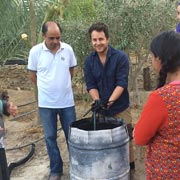
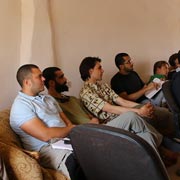
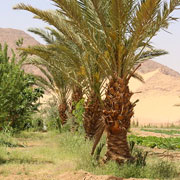


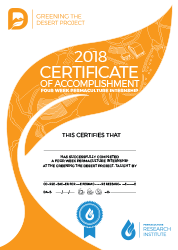
Practical Course Components Will Include
Construction of multiple wicking bed roof gardens. Maintenance of existing food forests through chop’n’drop, pruning and mulching. Working closely with small animal systems as functional elements within the overarching design. Working with natural fertility systems with compost, compost tea, soil probiotics, natural fermentation and anaerobic natural fertiliser creations. Maintaining and working in desert vegetable gardens. Nursery and shade house work. Reed bed maintenance. Compost toilet maintenance. A field trip to observe established gabion water harvesting systems in the desert landscape.Theoretical Subjects That Will Be Covered:
- Home garden and school garden design and maintenance
- Food forests.
- Small animal systems
- Large grazing animal systems
- Water harvesting
- Broad landscape rehabilitation
- Constructing wicking beds
- Worm Farms Systems
- Grey water reed beds establishment
- Installing a solar system
- Rocket stoves
- Solar hot water systems
- Fuel wood systems
- House design
- Straw bale mudbrick building
- Compost production and compost tea
- Biological fertiliser
- Aquaponics
- Nursery systems
About the Teachers
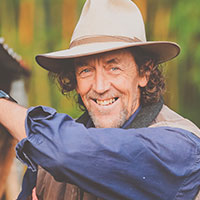
Geoff Lawton
Geoff Lawton is the main facilitator for this PDC course. He is a Permaculture consultant, designer and teacher. He first took his Permaculture Design Certificate (PDC) Course with Bill Mollison in 1983. He holds a Diploma in Permaculture Education, Design, Implementation, System Establishment, Administration and Community Development given by the founder of Permaculture, Bill Mollison.
Read MoreGeoff has undertaken hundreads of jobs teaching, consulting, designing, administrating and implementing, in 6 continents and close to 50 countries around the world. Clients have included private individuals, groups, communities, governments, aid organizations, non-government organisations and multinational companies.
He has currently educated over 15,000 students in Permaculture worldwide. These include graduates of the Permaculture Design Certificate (PDC) Course and courses focused on the practical design of sustainable soil, water, plant, and legal and economic systems.
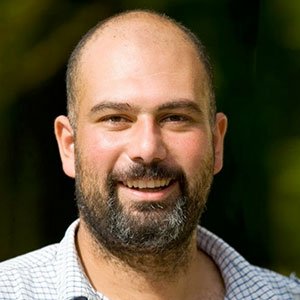
Salah W. Hammad
Salah’s passion for sustainable food production started while working with struggling small farmers in Jordan. The experience exposed him to the urgent need for an alternative approach. This is when he decided to make the transition into a career in permaculture following a 10 year long career in the food industry. During his career Salah has led and trained large teams in different food production related projects and setups, including manufacturing, service and sales. Salah is now designing, teaching and practicing permaculture at the Permaculture Research Institute under the management of Geoff and Nadia Lawton.
Read MoreWith experience in dry arid, temperate, and subtropical climates, covering both urban, rural and broad acre setups, he is aiming to design and install systems that empower individuals and communities with permaculture tools that will help them meet their needs and care for the earth. Geoff Lawton is the main facilitator for this PDC course. He is a Permaculture consultant, designer and teacher. He first took his Permaculture Design Certificate (PDC) Course with Bill Mollison in 1983. He holds a Diploma in Permaculture Education, Design, Implementation, System Establishment, Administration and Community Development given by the founder of Permaculture, Bill Mollison.
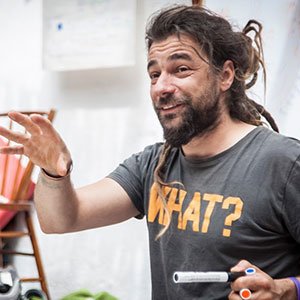
Istvan Markuly
Istvan is a Permaculture Designer, Consultant, Teacher, and Local Community Developer, his experience is expanding through international participation and earthwork management in diverse conditions from wetland to, cold temperate climate in Europe, dryland in Africa. He completed numerous permaculture training programs and learning, working from internationally regarded teachers including Warren Brush, Paul Taylor, and Geoff Lawton.Read More
István’s work is focused on the main principles of Permaculture. He is dedicated to helping motivate and inspire others to naturally include these principles in their lives. He is a co-founder of the international Earth Environmental Education and Életfa Permakultúra in the Hungarian region. Currently runs the project to support the local permaculture community network and demonstration site in West Cork Ireland and Hungary.
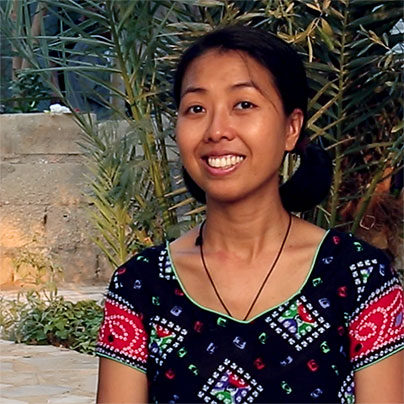
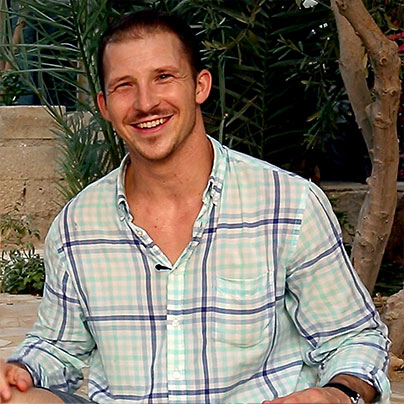

Reviews
 A great tool for survival on a planet that is facing a very unpredictible future. - 7/16/2019
A great tool for survival on a planet that is facing a very unpredictible future. - 7/16/2019
 We have to plant trees. It's hurry!!!!! - 6/22/2019
We have to plant trees. It's hurry!!!!! - 6/22/2019
 Here's a living blueprint for transforming no end of damaged landscapes into productive polycultures. - 3/23/2019
Here's a living blueprint for transforming no end of damaged landscapes into productive polycultures. - 3/23/2019
 Amazing project!! Loved the visit, the people, the dates and the smoothie at the Cafe!! Thanks for having us!! - 3/18/2019
Amazing project!! Loved the visit, the people, the dates and the smoothie at the Cafe!! Thanks for having us!! - 3/18/2019
 it is amazing what can be accomplished with applied knowledge! - 1/17/2019
it is amazing what can be accomplished with applied knowledge! - 1/17/2019
 A truly impressive achievement! - 1/17/2019
A truly impressive achievement! - 1/17/2019
 it's amazing place , everyone should visit it - 12/23/2018
it's amazing place , everyone should visit it - 12/23/2018
 Helping change things for the better for all - 12/23/2018
Helping change things for the better for all - 12/23/2018
 Transforming desert into green - 11/07/2018
Transforming desert into green - 11/07/2018
 one of the most Pioneer projects that gives hope for better future - 9/22/2018
one of the most Pioneer projects that gives hope for better future - 9/22/2018

About The Location
This is a truly eye-opening location to earn your PDC. You will be studying on the lowest point of the earth in one of the most testing climates to practice Permaculture. With arid soil and very little rainfall, you will be viewing permaculture practices at their maximum potential.
The local population is made up of traditional Bedouin tribes and long-term refugees stemming from displacement of local populations from within Palestine. The project site is typical of the area – a marginal arid land low-income settlement.
At the project site you will see examples of energy-efficient appropriate housing with natural cooling systems, arid climate plant nursery, solar electricity, solar hot water, biological waste water treatment recycling, dry compost toilets, rain water harvesting earthworks and diverse interactive plant, animal and tree systems for local food production and processing.
The course will be taught in the lecture room at the project's demonstration house which also features: eco-lodge accommodation options, permaculture cafe and gift shop, administration office for the project and the local permaculture group.
The project permaculture gardens are designed as a model that can be replicated within the local village, throughout Jordan and other countries in the region.
Getting Here From The Airport
Airport Taxi to the site is JD$40 approximately.
The farm is in the South Shouna region, in al Jawfa-Jawasreh Village, second right turn
behind the Jawasreh School for girls. Farm Manager, Hayel : +962 79 534 4376
The Coordinates for the location is: 31.871754,35.631470 or 31°52'18.3"N 35°37'53.3"E
You can find it on Google Maps here: https://goo.gl/maps/M9VnYYZQuSdRSE168
Here is the Adress in Arabic to show to your taxi driver:
الجمعیة الاردنیة للبیئة النوعي
الشونة الجنوبیة , الجوفة , الجواسرة, ثاني دخلة
على الیمین خلف مدرسة الجواسرة الثانویة
.للبنات
الرجاء الاتصال على الرقم التالي للاست فسار
+962 79 534 4376 هایل
What You Will Need to bring with you?
- Sun hat and sunglasses
- Good walking or working shoes
- Casual and comfortable clothing – natural fabrics recommended for coolness
- Sunscreen
- Water bottle
- Flashlight/headlamp
- Your own bedding (sheets etc.)
- Ample supply of any needed medications
- Tent if needed (depending on accommodation option)
- Sleeping bag and hiking mattress if needed
- Sandals
- Personal toiletries
Course Times
8.30am to 5.30pm.
All prices are in Australian dollars, including GST. An early bird discount is available if the course fee is paid 21 days prior to the course start date.
Refund PolicyRefunds Policy
Sometimes circumstances change and you may be unable to attend a course you have paid for. If so, there are a few options available;
If you notify us at least 14 days prior to the course commencement, GTDP will refund your course fee but will deduct an administration fee of 30%, deposits are not refundable, OR you can apply the full amount as credit towards a future course.
If you notify us less than 14 days prior to the course commencement GTDP cannot provide a refund OR you can send
someone else in your place.
The Greening The Desert Project reserves the right to cancel or discontinue advertised courses, if an insufficient number of attendees/ low attendance or due to unforeseen circumstances on the behalf of the GTDP requires us to not proceed with the advertised offer, you will immediately receive a full refund. All other refunds can take between 7-30 days to process.
Please strongly note, that travel to and from the Greening the Desert Project site is the attendee’s responsibility. You are encouraged to liaise with the GTDP about numbers of attendees and the potential of course cancellation prior to booking travel. The PRI/GTDP is not responsible for any loss or travel reimbursement, should the course be discontinued.
Cultural Sensitivity
The Jordan Valley is home to an ancient and classical civilisation that has had many cultures, traditions, and peoples cross through its land and also settle within it. International students are requested to be culturally sensitive to the Islamic traditions and Muslim social protocol. A full orientation will be provided.
General Guidelines for all Participants
- Showing respect for oneself.
- Open and receptive attitude toward cross cultural communication.
- Willingness to ask questions whenever necessary.
- Conservative attire is recommended.
- Wearing shirts at all times.
- For women - Long skirts or pants (Shorts considered offensive).
- For men - Shorts are acceptable (but must be at least to the knee).
- Sobriety at all times during the PDC course.
- Respect for elders, religious traditions and practice, and community leaders.
- Not photographing locals without permission, especially not local women and children.
- Respecting Muslim gender relation etiquette.
- Not touching or shaking hands of Muslim adults of the opposite gender without permission.
Not displaying overly intimate affection in public with wife/husband or partner.

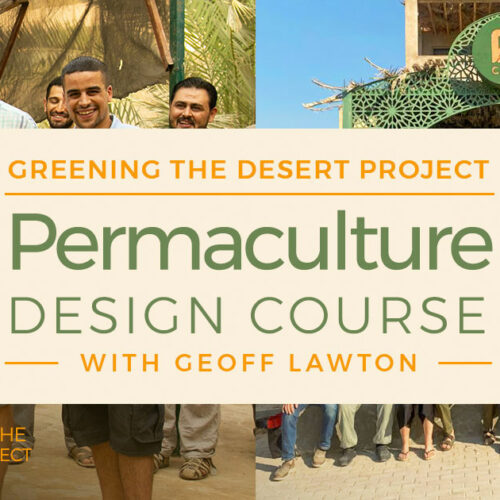

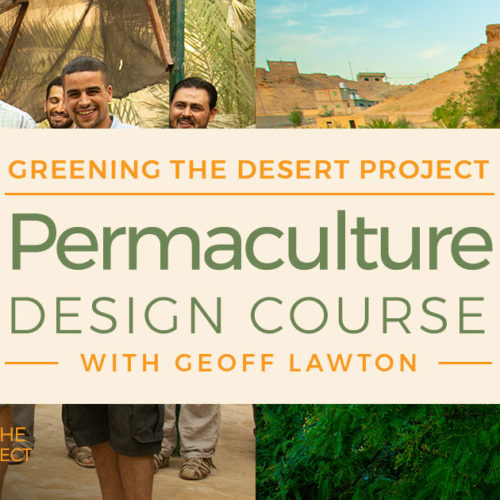
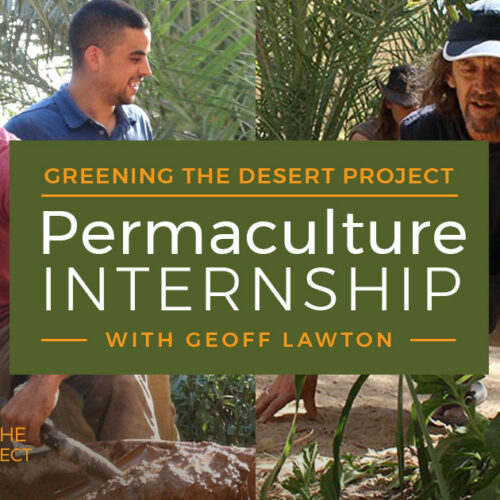
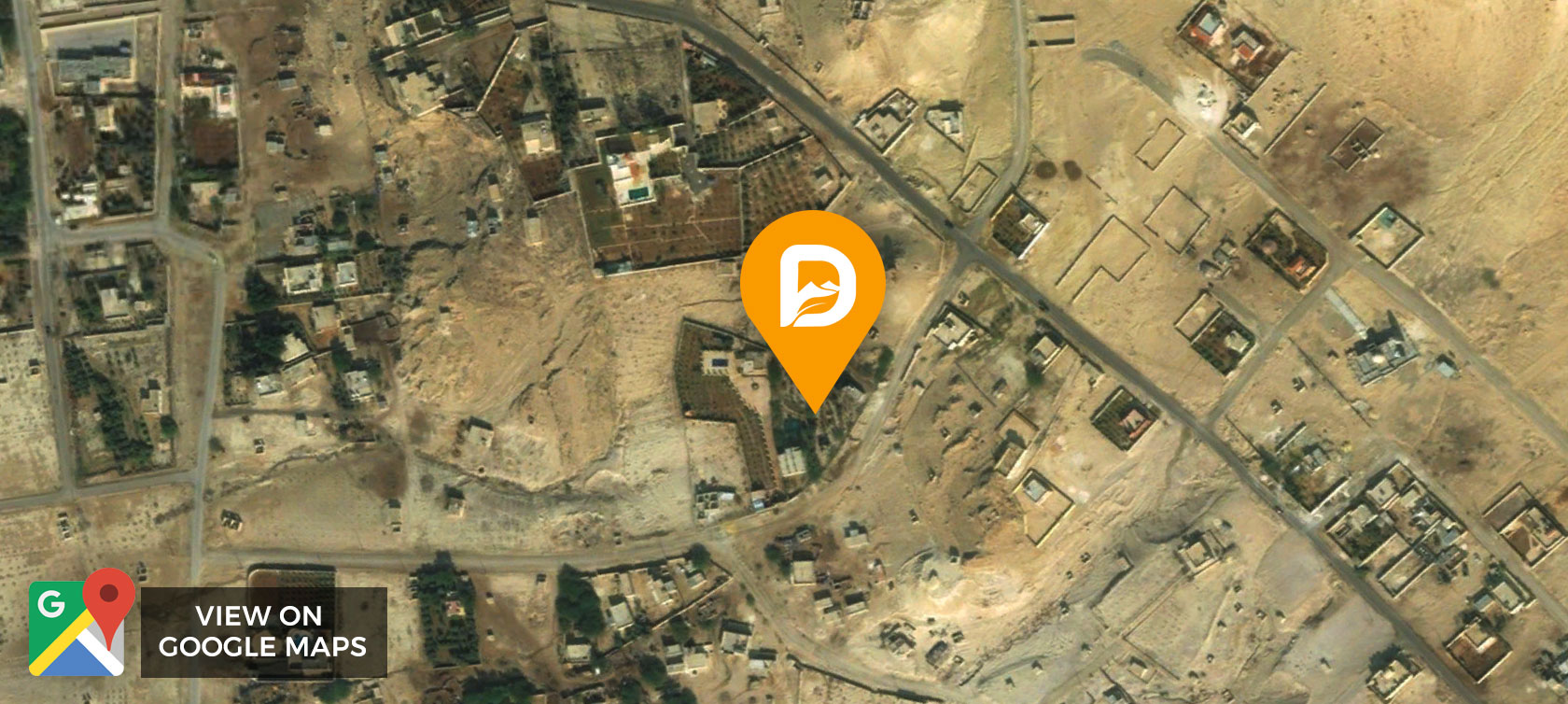
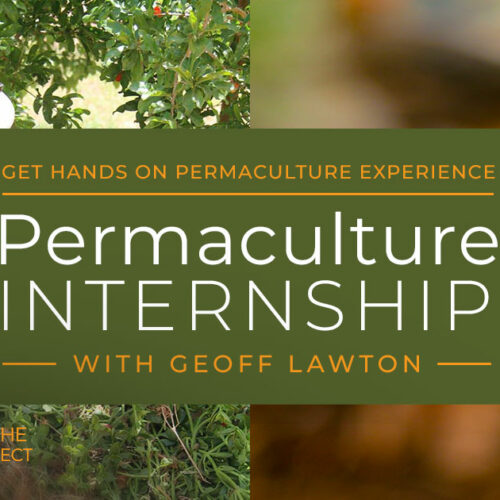
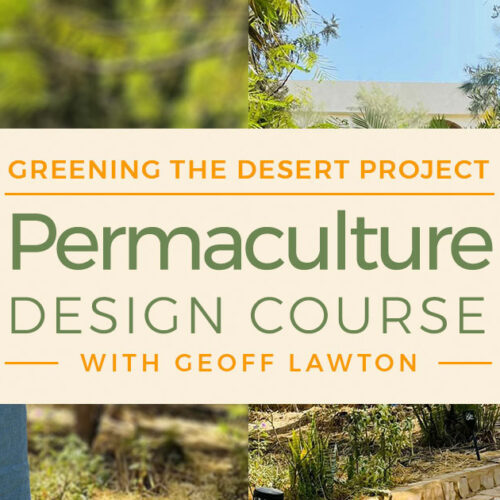
Adnan Alhasan –
Can’t wait to start the journey, hope it will be a great beginning for me
CHUA, CHIN-LEONG –
.